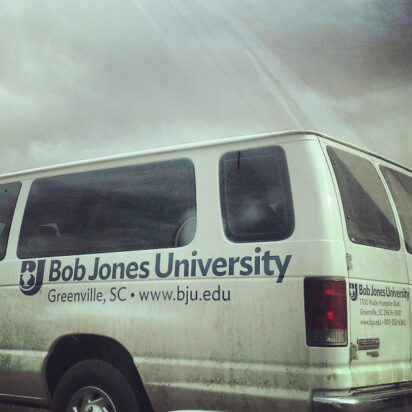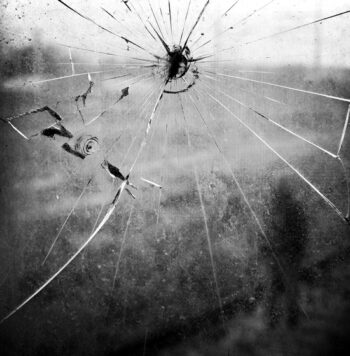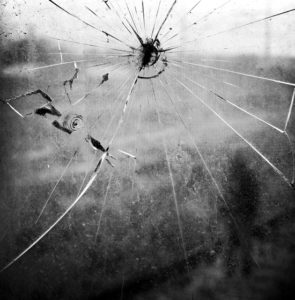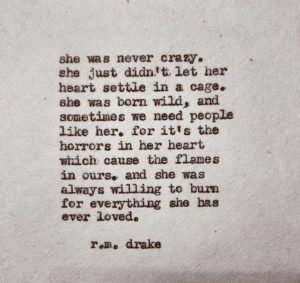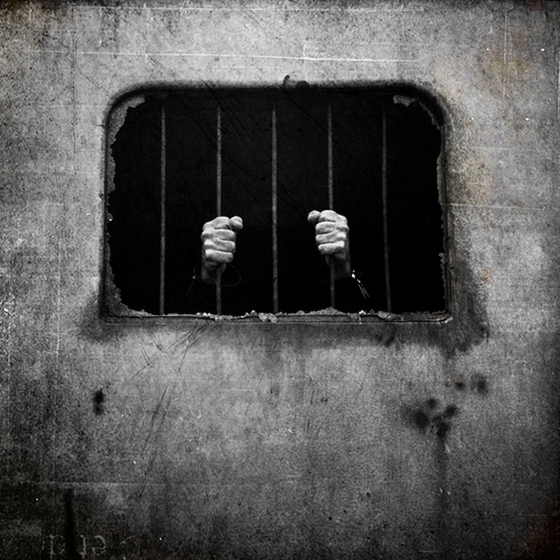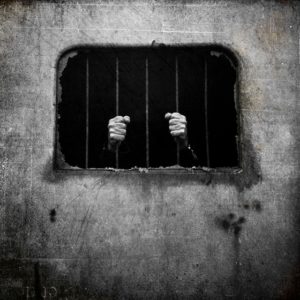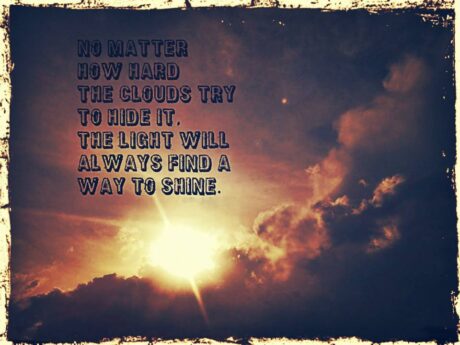“In order to escape accountability for his crimes, the perpetrator does everything in his power to promote forgetting. If secrecy fails, the perpetrator attacks the credibility of his victim. If he cannot silence her absolutely, he tries to make sure no one listens.” ― Judith Lewis Herman, Trauma and Recovery
Growing up, I knew nothing of the Apostolic church. The United Pentecostal Church, as far as I knew, didn’t exist. I didn’t have any friends in it. No family was part of it. It was a completely foreign subject to me.
When I was 17, that all changed. I attended a small private school, where there were several UPCI students. I hung out with some of the students, and even started to date a girl whose grandfather was the pastor of the local UPCI church. (Note: Her grandpa was also the presbyter of the section, and almost every church in the section was pastored by members of his family.)
We dated several years, and basically, I was accepted as part of that family. The early stages of my ministry even began, and I received a lot of the perks of being part of the ministerial family. I received attention, respect, and felt important – this was a totally different world than the one I grew up in, and I loved it. I was somebody.
Time progressed, and while my relationship with the girlfriend’s family grew, our relationship was falling apart. It was a bad deal, and to sum up quickly, one night she crossed a line where her verbal abuse became physical abuse, and that was it – it was over.
With that, came a strange and unusual problem.
A constant teaching within this family was that you should follow and obey your pastor. They “watched over you.” When you follow and obey their voice, their “anointing flows over you, also, and protects you.” If you ever turn away from their teaching, then you were in a lot of trouble. Not only were you disobeying them, but you were disobeying God, you were out of His will, and you will be sorry for doing that!
A short time after this, I was called into the pastor’s office, the grandfather of my ex. He made small talk for a bit, and then approached the subject about how I needed to stay at the church, and then said, “I want you to know, your breakup won’t have any effect on how I pastor you.”
I remember him saying that. I remember his voice being calm and that he was trying to be friendly. Looking back, I think he actually believed what he was saying.
Still, he was wrong.
One positive after the break up was that I was able to go out and hang out with people from other churches. I even went out on a few dates. I was instructed by the youth pastor that I needed to seek the pastor’s permission of anyone I wanted to go out on a date with, which stupidly, I did.
On one of these dates, I received a big shock – I was told how the pastor’s wife warned her about me. She relayed to me a bunch of flat-out lies which had all originated from a conversation several of the pastors had.
I went to my pastor, and he said he would take care of it. He didn’t say anything more. That was it. I trusted him. I went on my way.
Well, as I tried to go on with my life, there were still a lot of things being said about me. During this time, I was receiving harassing phone calls at all hours of the night. I was young, and still living with my parents. The calls were coming from the pastor’s family, and again, I told him about it. I saw his annoyance this time, but again, he said he would take care of it. This was the last time I trusted and believed in him.
The harassment went on, and the third time I mentioned it, instead of saying he would take care of it, he got angry and starting criticizing me over stuff I didn’t even know anything about. What was he told by family members? I have no idea. Looking back, I have trouble remembering everything he said, but not his attitude. I sat there, finding it impossible to believe this was happening.
I left his office with a breaking heart. The people I’d believed in were not only neglecting being ministers of the Gospel, but they were lying, and actively attempting to destroy my faith and hope. Sure, they may not have seen it like that, but what else would you call it?
The abusers kept on preaching in their churches. They kept singing the worship songs. They kept playing the music. There were NO repercussions for their actions.
At the same time, my ministry was over. The pastor even told me not to ask him about it again. No reason was given; my voice in church was completely silenced. I was being punished. It was so different from several years earlier, when the pastor shook my hand, hugged me, and told me thank you for everything I was doing to help keep the church alive. (There were a lot of behind-the-scenes problems the main family was keeping quiet.)
Now, I was nobody. I was a problem. It was obvious the family didn’t want me at the church anymore. Some couldn’t come out and say it, but their attitude and spirit showed it. I hated going to church. I felt like I had done this incredible evil because I would not tolerate abuse from my ex.
At the time, I was still a UPCI guy. I bought and believed all of theological kool-aid, especially when it came to “obeying and serving” the pastor. I didn’t have enough biblical knowledge at the time to understand the errors of its theology. One member of the family even called my house and told me that they would make sure I never have a ministry again, which was still so very important to me.
Dejected, defeated, and feeling lost, I went to the pastor’s house one day, and just told him this was wrong, and that I wasn’t coming back to his church. Every ounce of strength I had, all of the boldness I could muster up, I used it to do this in the “right attitude.” That was a big thing for them. I wanted to leave in a mature way, so if anything negative was said about me, it would be a lie.
One of the reasons this was so hard was because I felt if I tried to leave, it would be a one-way ticket to hell. Obedience to ministry (and the verse often used was to obey those who rule over you) was an important piece of salvation to these people. I was so afraid that I would go to hell, because to go against the pastor and his thought on “God’s Will” was damning. That is one reason why it took me so long to leave. I just came to a point where I was so miserable, I knew being away from it, I wouldn’t feel any worse than I already did. I also hoped that God would forgive me for leaving. It was a gamble in my eyes, but I didn’t know what else to do.
Looking back now, I can see that this experience really broke me. I don’t think I ever fully felt at peace in the UPCI after this. (On a side note: I eventually ended up at another UPCI church far away from this family, and my ministry did get going again. In fact, I eventually became a licensed minister in the UPCI for a while. I ultimately left because of theological differences, and the fact I was constantly seeing spiritual abuse in a lot of other places. Eventually, my conscience wouldn’t allow me to be part of that anymore, and I left.)
Some years later, after getting my UPCI license, I bumped into my former pastor’s wife, talked with her, and before leaving, I said, “I love you all and think of you all often.” She retorted, “Well, it was your choice to leave. You didn’t have too.” Not wanting to argue, I just replied, “Yeah, but I needed too.” She just smiled and shook her head. She didn’t get it. I thought to myself, if I hadn’t left, I wouldn’t be licensed, I might not even be alive.
I realize that pastors are people like you and I. They make the same kind of mistakes we do. Recognize though, that a good pastor will put your needs first. Not his. Not the church’s needs. If he is to be a good spiritual adviser, he can’t put traditions, doctrines, numbers, and his church before your own well-being. If the church is destroying your faith, someone who cares will do whatever he or she can to rebuild that faith, not punishing you because of family gossip. By biblical definition, YOU are the church. Not a congregation that meets on Sunday and is controlled by a man.
The end turned into a new beginning…
After leaving my home church, my broken heart was only getting worse. I wasn’t attending any church; I was too scared. I worked in a public place and was always seeing church folk. Some treated me like a backslider; I was in a really bad state. In the middle of one night, on the floor in my room, I just broke down and cried, and cried, and cried, like I can’t ever remember crying before. Everything was going through my mind, and I just kept asking God “why” all of this was happening.
Out of the blue, I just felt something that was so strong, it seemed audible.
“John, I love you.”
Everything changed after that. That small sentence felt more real than all of the tongue-speaking, all of the choirs, all of the crazy services, all of the preaching, all of the prayers, all of the education, all of the speeches from church leadership, and all of the study. That small sentence was the strength I didn’t have anymore. It has been my anchor in life. Through all of my trials, journeys, spiritual walk, and battles, I go back to that, and I have no doubt, He loves me. He still loves me. And as I journey on, His love will continue to be my guide.
He loves me. I hope that telling my life stories, you realize that He loves you, too. He never abandoned me. Even in the confusion and pain of spiritual abuse, and bad theology, the Love of God was still there.
********
Shop at our Amazon store! As an Amazon Influencer, this website earns from qualifying purchases.




